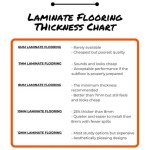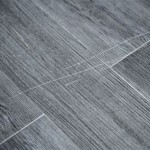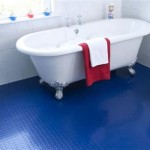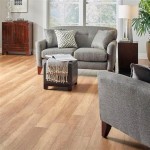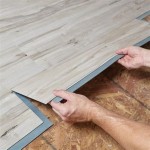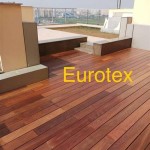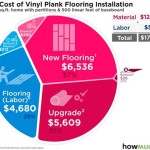Is 1/2 Inch Engineered Hardwood Flooring Good? A Comprehensive Analysis
Engineered hardwood flooring has become a popular alternative to solid hardwood, offering a blend of aesthetic appeal, cost-effectiveness, and enhanced durability. A critical factor in determining the suitability of engineered hardwood for a specific application is its thickness. Among the various thicknesses available, 1/2 inch (or approximately 12mm) engineered hardwood is a common choice. This article aims to provide a comprehensive analysis of 1/2 inch engineered hardwood flooring, examining its advantages, disadvantages, and suitability for different situations.
Engineered hardwood flooring consists of multiple layers, typically with a hardwood veneer (the visible top layer) bonded to a core made of plywood, high-density fiberboard (HDF), or other composite materials. This layered construction provides greater stability compared to solid hardwood, making it less susceptible to warping, cupping, and expansion/contraction due to changes in humidity and temperature. The thickness of the flooring board, including both the veneer and the core, significantly influences its performance and suitability for various applications.
Key Point 1: Advantages of 1/2 Inch Engineered Hardwood Flooring
Several advantages make 1/2 inch engineered hardwood a compelling option for numerous homeowners and property managers. These advantages relate to cost, installation flexibility, and overall performance characteristics.
Cost-Effectiveness: Generally, 1/2 inch engineered hardwood is more affordable than thicker options such as 3/4 inch engineered or solid hardwood. The lower material cost directly translates to savings on the initial purchase. This makes it an attractive choice for budget-conscious consumers who desire the look and feel of hardwood without the premium price tag often associated with solid alternatives.
Ease of Installation: The reduced thickness of 1/2 inch engineered hardwood contributes to its ease of installation. It is typically lighter and easier to handle than thicker planks, simplifying the installation process, especially in DIY projects. Furthermore, the thinner profile often allows for easier transitions to adjacent flooring materials, such as tile or carpet, minimizing the need for extensive subfloor preparation.
Suitable for Above-Grade Installations: Engineered hardwood, in general, is well-suited for installation in areas above ground level, including upper floors of homes and apartments. The 1/2 inch thickness provides adequate stability and resistance to temperature and humidity fluctuations typically experienced in these environments. Its dimensional stability ensures the flooring maintains its integrity even with seasonal climate changes prevalent in these areas.
Compatibility with Subfloors: A 1/2 inch thickness can be compatible with a wider range of subfloor conditions compared to thicker options. While a level and stable subfloor is always recommended, the flexibility of engineered construction allows it to tolerate slight imperfections more readily. This can reduce the prep work required before installation, saving time and labor costs. However, significant subfloor irregularities must still be addressed to prevent unevenness and potential long-term damage to the flooring.
Good Balance of Durability and Comfort: While not as robust as thicker options, a 1/2 inch engineered hardwood floor offers a reasonable balance between durability and underfoot comfort. It can withstand everyday wear and tear from foot traffic, furniture, and pets, provided it is properly maintained. The layered construction also provides a degree of cushioning, making it more comfortable to walk on compared to harder surfaces like tile or concrete.
Key Point 2: Disadvantages and Limitations of 1/2 Inch Engineered Hardwood
Despite its advantages, 1/2 inch engineered hardwood flooring also presents certain disadvantages that should be carefully considered before making a purchase decision. These limitations primarily relate to durability, refinishing potential, and sound insulation.
Limited Refinishing Potential: One of the primary limitations of 1/2 inch engineered hardwood is its reduced capacity for refinishing. The ability to refinish a hardwood floor is a significant advantage, as it allows homeowners to rejuvenate the floor's appearance and extend its lifespan. Refinishing involves sanding down the surface and applying a new finish. Since 1/2 inch engineered hardwood typically has a thinner veneer layer compared to thicker options or solid hardwood, it may only be refinished once, or not at all, depending on the thickness of the veneer. This limits its long-term appeal and potential for restoration if it suffers from significant scratches or damage.
Reduced Sound Insulation: Compared to thicker hardwood or floors with added underlayment, 1/2 inch engineered hardwood provides less sound insulation. This means it may transmit sound more readily between floors, which can be a concern in multi-story homes or apartments. While underlayment can be added to improve sound insulation, it adds to the overall cost and installation complexity.
Lower Resale Value Perception: While engineered hardwood is generally well-regarded, some homebuyers and real estate professionals might perceive 1/2 inch engineered hardwood as a less premium option compared to thicker hardwood or solid hardwood. This perception could potentially impact the resale value of a home, although the extent of this impact can vary depending on the overall quality of the installation, the specific market, and the preferences of potential buyers.
Potential for Damage from Subfloor Imperfections: Although 1/2 inch engineered hardwood is more forgiving than solid hardwood regarding subfloor imperfections, significant unevenness can still cause problems. Over time, the flooring may develop squeaks, dips, or even cracks if the subfloor is not properly prepared. A thorough inspection and, if necessary, rectification of the subfloor is crucial to ensure the longevity and performance of the flooring.
Susceptibility to Moisture Damage: While engineered hardwood is more resistant to moisture than solid hardwood, it is not entirely waterproof. Excessive moisture, such as from leaks or spills, can still damage the flooring, causing warping, delamination, or mold growth. Prompt cleanup of spills and proper maintenance are essential to prevent moisture-related issues.
Key Point 3: Factors to Consider When Choosing 1/2 Inch Engineered Hardwood
When deciding whether 1/2 inch engineered hardwood is a suitable choice, several factors should be carefully evaluated. These factors encompass the intended use of the space, budget constraints, aesthetic preferences, and long-term maintenance considerations.
Intended Use of the Space: The amount of foot traffic and the types of activities that will occur in the space should be considered. For high-traffic areas, such as hallways or living rooms, a thicker and more durable flooring option might be preferable. 1/2 inch engineered hardwood may be more suitable for bedrooms, offices, or other areas with moderate foot traffic.
Budget Constraints: Budget limitations often play a significant role in flooring decisions. If cost is a primary concern, 1/2 inch engineered hardwood offers a more affordable alternative to thicker hardwood or solid hardwood. It allows homeowners to achieve the desired aesthetic without exceeding their budget, making it a practical choice for cost-conscious renovations or new construction projects.
Aesthetic Preferences: The desired look and feel of the floor are crucial considerations. Engineered hardwood comes in a wide variety of wood species, colors, and finishes. Homeowners should choose an option that complements their existing décor and personal style. The visible veneer layer of the engineered hardwood should be carefully inspected to ensure it meets the desired aesthetic standards.
Subfloor Condition: The condition of the subfloor is paramount to the successful installation and long-term performance of any flooring. Before installing 1/2 inch engineered hardwood, the subfloor should be thoroughly inspected for levelness, moisture content, and structural integrity. Any necessary repairs or leveling should be completed before proceeding with the installation. Addressing subfloor issues proactively can prevent future problems and ensure the longevity of the flooring.
Maintenance Requirements: All flooring options require regular maintenance to maintain their appearance and longevity. Engineered hardwood should be cleaned regularly with a manufacturer-recommended cleaner. Avoid using excessive water, as this can damage the flooring. Scratches and minor damage can be repaired with touch-up kits or by a professional flooring contractor. Understanding and adhering to the recommended maintenance procedures is essential for preserving the beauty and durability of the flooring.
Professional Installation vs. DIY: While 1/2 inch engineered hardwood is generally easier to install than thicker options, it is still essential to assess one's skills and experience before attempting a DIY installation. Improper installation can lead to a variety of problems, including unevenness, gaps, and squeaks. If unsure, it is best to hire a professional flooring contractor to ensure a proper and lasting installation. Professional installation typically comes with a warranty, providing added peace of mind.

3 8 Inch Vs 1 2 Hardwood Floors Reallyfloors America S Est Flooring

4 Things To Know Before An Engineered Hardwood Floor Carlisle Wide Plank Floors

7 1 2 X Engineered Hickory Huntington Stain Hardwood Flooring Hardwoods4less

5 1 4 X 2 Engineered White Oak Natural Prefinished Flooring

5 X 1 2 Hickory Character Hand Sc 3mm Wear Layer Prefinished Engineered Hardwood Flooring Discount

Hardwood Floor Versus Engineered Wood Which Is Better For Your Home

4 3 X 1 2 Tigerwood Prefinished Engineered Hardwood Flooring

Malibu Wide Plank Pacifica Maple 1 2 In T X 7 5 W Tongue Groove Wire Brushed Engineered Hardwood Flooring 23 3 Sq Ft Case Hdmptg053ef The Home Depot

5 X 1 2 Engineered European White Oak Matte Natural Hardwood Floorin Hardwoods4less

1 2 X Random Length Select Better Red Oak Flooring
Related Posts

